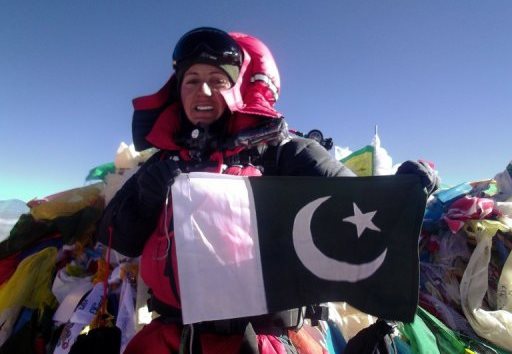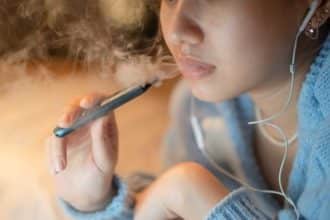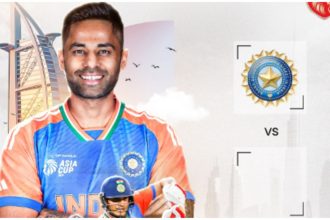Pakistan’s most famous mountaineer 22-year-old Samina Baig, spoke at a packed Aga Khan University Hospital’s gymnasium,. Her talk was suitably titled ‘No Mountain Too High, Nor Too Easy’. She stated that, “woman can do just about anything a man can, all she requires is ‘opportunity”,
Baig is the first Pakistani woman and the third Pakistani after ace mountaineer Nazir Sabir and Hassan Sadpara, to hoist the green flag on the mighty Everest, the world’s tallest mountain.
Apart from being an Everest summiteer, Baig also has a personnel best record – she is the only Pakistani to have stepped on the highest points of all seven continents.
“The place where I am from, it has no electricity, no telephones and no internet,” she said, as the audience, a vibrant mix of school students, young doctors and other professionals, sat awestruck.
She recalled how she was fascinated by the mountain stories and climbing adventures her brother shared.
But to her climbing has become more than a physical act as she understood her brother’s vision and eventually shared it.
“Our aim is to motivate women all over Pakistan and tell them that if a woman can climb a mountain, she can do anything,” Baig stressed.
It is worth noting that the brother-sister duo are the third most popular siblings in the country, following Quaid-a-Azam Mohammad Ali Jinnah and his sister Fatima Jinnah and late pop-star Nazia Hassan and her brother Zoheb.
After her brief talk, over brother took over the podium space and went on to chart the journey of the two siblings which began from the remote Shimshal village in the Gilgit-Baltistan region.
Though Mirza had been instrumental in Samina’s Everest feat, he was unable to reach the summit due to health issues but encouraged Samina to finish her climb.
“Mountaineering is a metaphor. All of us have our own mountains to climb,” said Mirza, as he alluded to the highs and lows that life offers.
“I went to a government school, not an English medium one,” he said, as he addressed the crowd in English.
“When I started working, I wore Rs200 shoes from Landa Bazaar. I didn’t have proper climbing clothes even.”
In Karachi, where he finished his higher education, he tutored kids to make some extra money. “Every day, I walked from Tariq Road to Garden to save money. This continued for five yearshe told his enraptured audience.
From working as a porter and carrying loads for foreign expeditions that came to Shimshal, to becoming a cook and finally and a high-altitude porter, he paid his dues and worked his way to achieve his goal.
Taking his sister under his wings, he worked on their climbing skills and went to climb a few peaks in Pakistan, with zero sponsorship from a local or multinational. In between all this, he used social media and raised funds, with mostly white climbers sending in monetary donations as well as climbing gear for the two siblings.
Then set his sight on Everest. His motto of gender equality and the buzz he created online landed him lucrative sponsorships and generous funding from donors who had faith in him.
Once Everest was done, the siblings went on to do the Seven Summits challenge.






